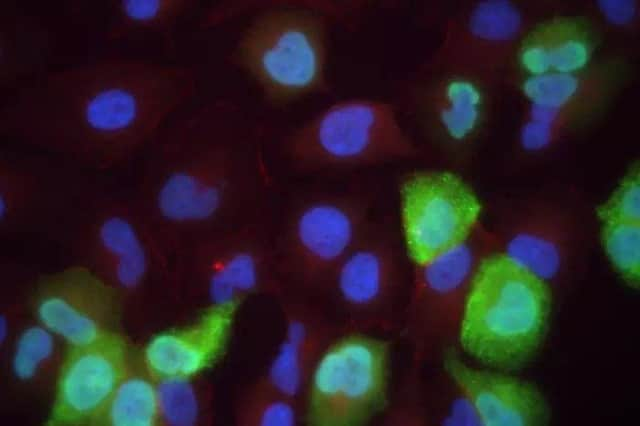Warning over highly-contagious superbug sweeping the nation


The team of investigators discovered a new variant of the well-known gene that causes resistance to polymyxin - currently the toughest antibiotic in our arsenal against bacteria.
The new multidrug-resistant bacteria, which carries the gene variant, was found on a patient with salmonella and could easily be passed on in bacteria.
Advertisement
Hide AdAdvertisement
Hide AdMore troubling, the gene was found in a healthy individual during a routine medical, suggesting that other healthy carriers may be spreading the resistance unknowingly.
Unlike any other members of its class, the gene was found in the food-borne pathogen, Salmonella. The new mechanism is a variant on the notorious, highly multidrug resistant mcr-1 gene, the same family that cause superbug bacteria like MRSA to be resistant.
Study author Dr Biao Kan, professor of pathogenic microorganisms and infectious disease control, National Institute for Communicable Disease Control and Prevention, said: “This is the first time an mcr-1 gene has been found in Salmonella in a healthy carrier.
“Healthy carriers play an important role in transmission of resistance genes to the community.
Advertisement
Hide AdAdvertisement
Hide Ad“Salmonella infections have been the leading cause of foodborne illness, and Salmonella-carrying mcr-1 will likely be a problem in food safety.”
They are worried in case there is another ‘Typhoid Mary’-like figure, who could unwittingly pass the immune bacteria on to hundreds or thousands of people. Mary Mallon was responsible for several outbreaks of typhoid during the first half of the last century, because she had no idea she was carrying the killer disease.
Dr Kan added: “The gene, mcr-1 and its variants, including mcr-1.6 all need to be monitored closely because of their resistance to polymyxin antibiotics, generally, and to colistin, in particular.”
A particular concern is the possibility that new variants on any of these mcr-1 genes could result in increased resistance to colistin, the strongest form of antibiotic polymyxin.
Advertisement
Hide AdAdvertisement
Hide AdIn such cases, patients will need to be hit with higher than normal uses in a bid to beat the bacteria. As with many resistance genes, this one is carried and transmitted on a plasmid, a piece of extra-genomic DNA which can jump from one species of bacterium to another.
The particular plasmid carrying this gene, known as IncP, has a broad host range, and a high frequency of jumping from species to species.
The research is published in Antimicrobial Agents and Chemotherapy, a journal of the American Society for Microbiology.